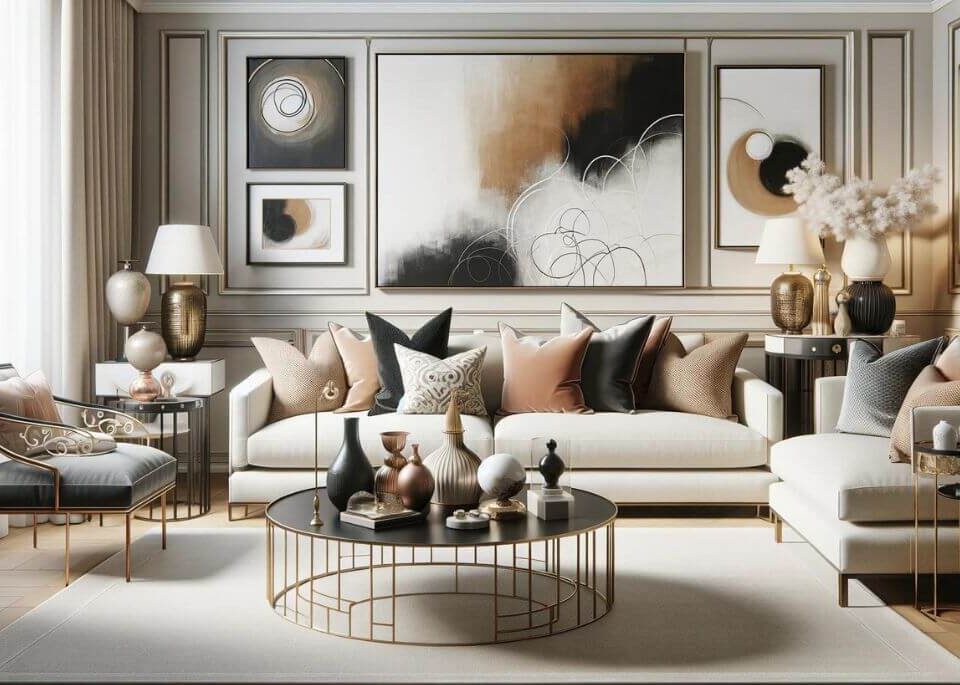
Behind the Scenes: Building a Successful Interior Design Business
July 24, 2023
Space Planning 101: Maximizing Functionality in Your Home
July 31, 2023Choosing the Right Materials and Finishes for Your Space
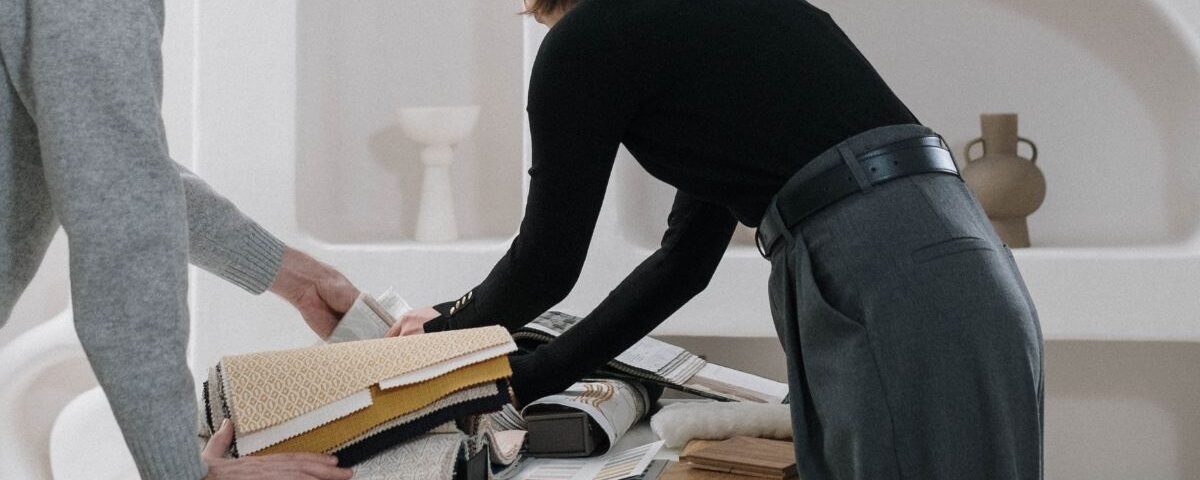
Choosing the right materials and finishes is a crucial aspect of interior design. It’s an art and science that influences not only the aesthetics of a space but also its functionality and longevity. Our focus keyword, “Material and Finish Selection,” is an integral part of this process. This article delves into the fundamentals of material and finish selection and provides practical guidelines for making these choices. With these insights, you can transform your space into a true reflection of your personal style and lifestyle needs.
Table of Contents
Understanding Material and Finish Selection
Material and finish selection is about choosing the appropriate materials for furniture, fixtures, and other elements in a space, as well as deciding on the finish or surface appearance of these materials. The choices you make in this regard can significantly influence the overall design, mood, and functionality of your space.
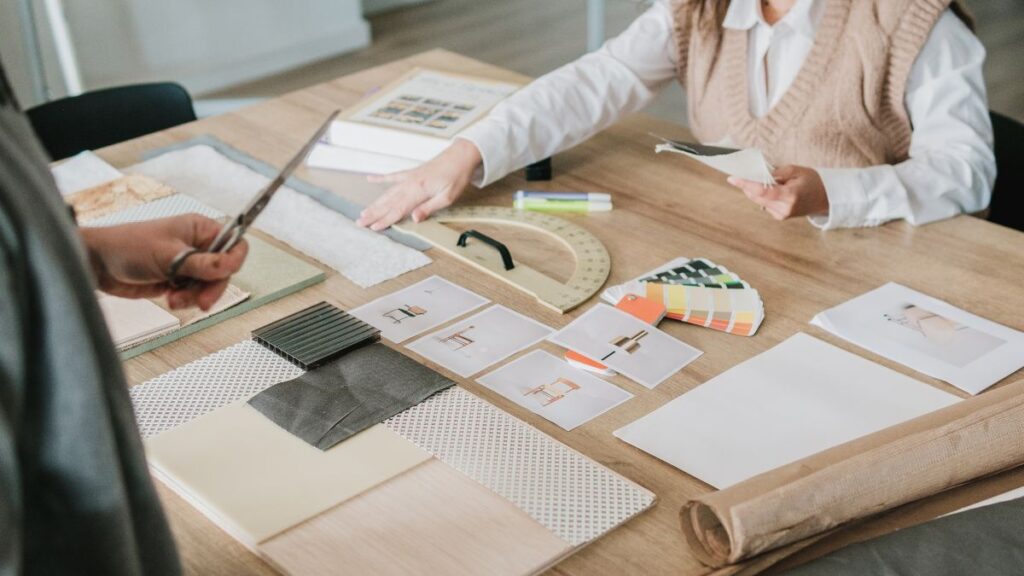
Significance of Material and Finish Selection
Materials and finishes play a significant role in defining the character and aesthetics of a space. They contribute to the room’s ambiance, acoustics, comfort, and practicality, affecting how we perceive and experience the space.
How to Choose the Right Materials
Consider Your Lifestyle
Your lifestyle is a significant determinant in your material selection. If you have children or pets, for instance, you might opt for durable and easy-to-clean materials like leather or microfiber for your upholstery.
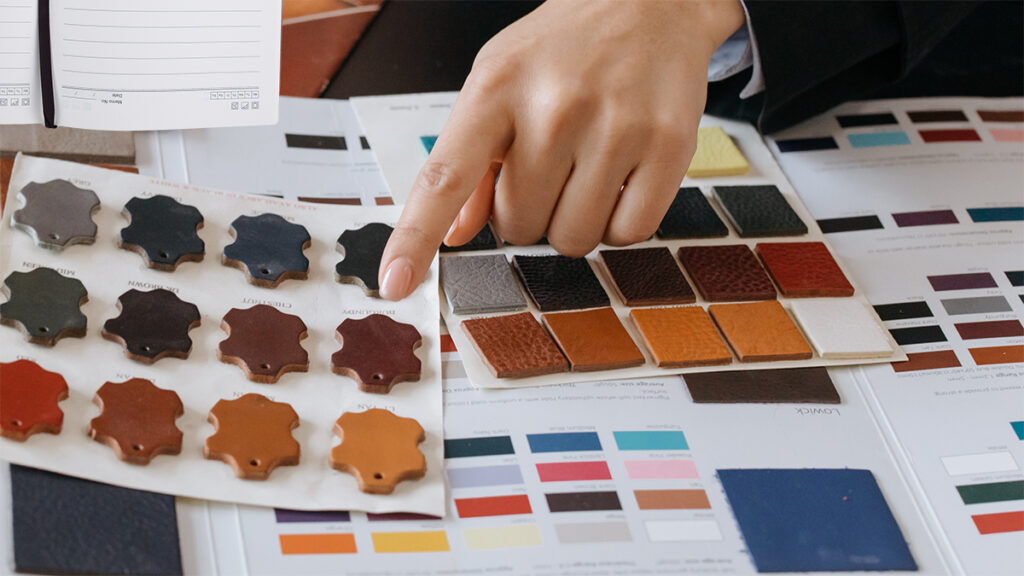
The Function of the Space
The purpose of the room also dictates the kind of materials you choose. For example, for a kitchen, you’d likely prefer surfaces that are heat-resistant, stain-resistant, and easy to clean, like stainless steel or granite.
Maintenance and Durability
The longevity and maintenance requirements of a material should also be considered. Some materials, like hardwood, may require more maintenance but offer greater durability, making them a good long-term investment.
An Overview of Common Materials
Wood
Wood is a versatile material that brings warmth and natural beauty to any space. It’s used in everything from flooring and furniture to accents and decor.
Metal
Metal, including stainless steel, brass, and copper, offers a sleek, modern aesthetic. It’s durable and easy to clean.
Glass
Glass is often used for its ability to create a sense of openness and light in a space. It’s typically used in windows, doors, table tops, and decor accents.
Fabric
Fabric can significantly contribute to the comfort and aesthetics of a space. Depending on the type, it can be used in everything from upholstery and curtains to carpets and decorative pillows.
How to Choose the Right Finishes
The Style of Your Space
The style of your space should guide your finish selection. For example, a high-gloss finish may suit a modern, minimalist design, while a distressed or matte finish might be more suitable for a rustic or vintage style.
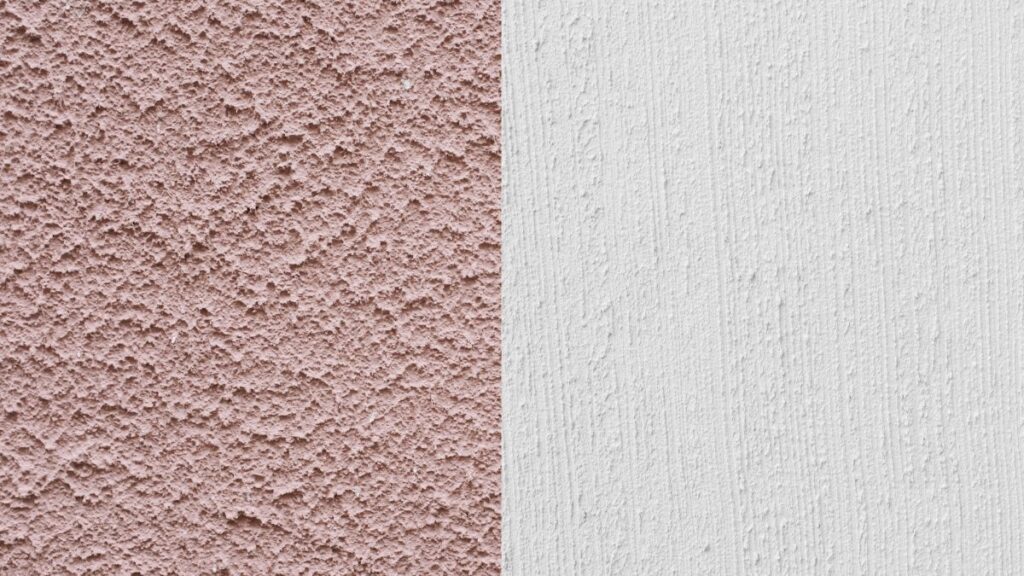
Color and Mood
The color of your finish can greatly influence the mood of a room. Warmer colors tend to create a cozy, welcoming feel, while cooler colors can evoke a sense of calm and tranquility.
The Impact of Light
Lighting plays a crucial role in how a finish looks and feels in a space. Glossy finishes tend to reflect more light and can make a space feel larger, while matte finishes absorb light and can create a more intimate atmosphere.
An Overview of Common Finishes
Matte
Matte finishes provide a smooth, non-reflective surface. They offer an understated, sophisticated look that works well in contemporary and traditional designs.
Glossy
Glossy finishes reflect light and add a vibrant, luxurious touch to a space. They can, however, show scratches and other imperfections more readily than other finishes.
Satin
Satin finishes strike a balance between matte and glossy. They have a soft sheen that adds depth and richness without being overly shiny.
Metallic
Metallic finishes can bring an element of glamour and luxury to a space. They are often used in accents and fixtures for their standout appeal.
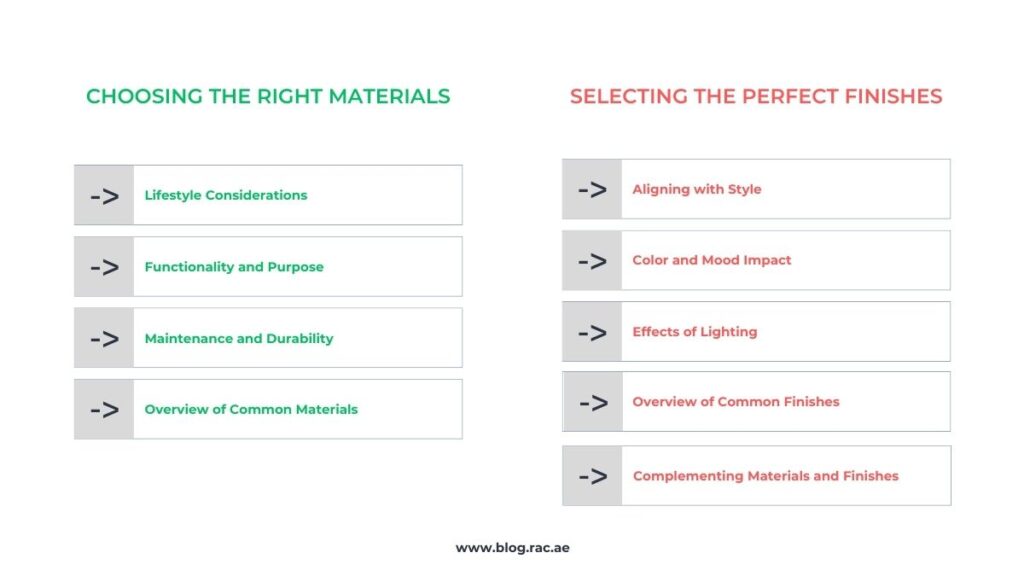
Complementing Materials and Finishes
It’s essential to consider how different materials and finishes will work together in a space. They should complement each other and contribute to a cohesive, harmonious design.
Common Pitfalls in Material and Finish Selection
Some common mistakes to avoid include choosing materials and finishes based purely on aesthetics without considering functionality, and failing to consider the effect of light on different finishes.
Material and Finish Selection for Different Rooms
Living Room
In the living room, consider comfortable and durable materials for your seating, such as leather or performance fabric. Wood, glass, or metal finishes can be used in your furniture and decor depending on the style of the room.
Kitchen
For kitchens, materials should be heat-resistant, stain-resistant, and easy to clean. Consider using a high-gloss finish for your cabinets for a sleek, modern look.
Bedroom
In the bedroom, prioritize comfort. Choose soft, breathable fabrics for bedding and window treatments, and consider a matte or satin finish for a soothing and restful ambiance.
Bathroom
In bathrooms, opt for moisture-resistant materials like ceramic or porcelain. Glossy finishes can add a clean, fresh look to your bathroom.
Material and Finish Selection for Outdoor Spaces
For outdoor spaces, consider materials that can withstand the elements, such as teak, metal, or all-weather wicker. A finish with UV protection can help prevent fading and damage from the sun.
Taking Inspiration from Design Trends
While it’s important to make choices that reflect your personal style, you can also take inspiration from current design trends. Just be sure to choose trends that have longevity and won’t look outdated in a few years.
Incorporating Sustainable Materials and Finishes
In today’s environmentally conscious world, consider incorporating sustainable materials and finishes into your design. This could include reclaimed wood, recycled metal, or finishes with low VOC (volatile organic compounds) levels.
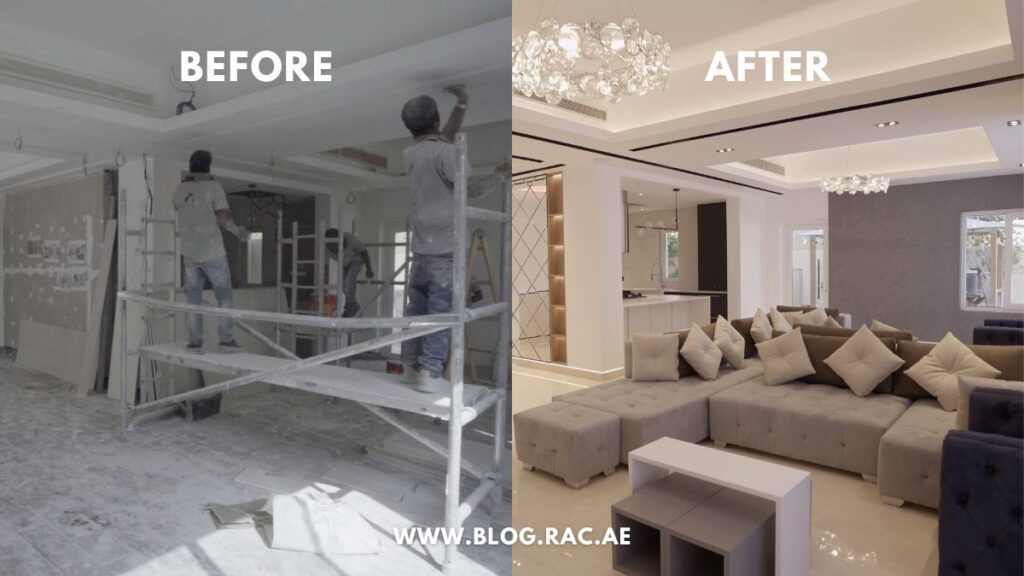
Key Takeaways:
- Significance of Material and Finish Selection: Thoughtful selection influences the look, functionality, and mood of a space, contributing to a cohesive design.
- Choosing Materials Based on Purpose: Your lifestyle and the room’s function should dictate your choice to ensure comfort, durability, and ease of maintenance.
- Mixing Finishes for Depth: Complementary finishes create depth and personality, providing a well-balanced and engaging look.
- Incorporating Sustainable Design: Sustainable materials add value, combining style with environmental responsibility for a lasting impression.
Conclusion
Choosing the right materials and finishes can significantly impact the overall look, feel, and functionality of your space. By considering factors like your lifestyle, the function of the space, and the style you want to achieve, you can make selections that bring your vision to life.
FAQs
1. What should I consider for outdoor material and finish selection?
Select weather-resistant materials like teak, metal, or all-weather wicker. UV-protected finishes can help prevent sun damage, ensuring longevity.
2. How important is material and finish selection in interior design?
Material and finish selection is crucial in interior design as it can significantly influence the overall look, mood, and functionality of a space.
3. How do I choose the right materials for my space?
Consider factors like your lifestyle, the function of the space, and maintenance requirements when choosing materials.
4. What are some common finishes I can choose from?
Common finishes include matte, glossy, satin, and metallic. The right finish for your space depends on the style you’re aiming for and the mood you want to create.
5. Can I mix and match different materials and finishes?
Absolutely! Mixing and matching different materials and finishes can add depth, interest, and personality to a space.
6. What are some common mistakes to avoid when selecting materials and finishes?
Some common mistakes include choosing materials and finishes based purely on aesthetics without considering functionality, not considering how different selections will work together in a space, and ignoring the effect of light on different finishes.
7. Can I incorporate sustainable materials and finishes in my interior design?
Yes, consider eco-friendly options like reclaimed wood, recycled metal, and low-VOC finishes. They offer a unique look while promoting environmental responsibility.
8. How can I draw inspiration from trends without making my space look dated?
Use design trends that complement your personal style but have timeless appeal. Choose trends with longevity to ensure your space remains relevant and stylish.
9. How critical is material and finish selection in interior design?
Material and finish selection is pivotal in determining the aesthetics and functionality of a space. The choices influence the room’s overall mood, character, and practicality, shaping how you experience it.
10. How can I choose the right materials for my living space?
The best material selection depends on your lifestyle, room function, and required maintenance. For example, a home with children or pets benefits from durable, easy-to-clean fabrics. Kitchens often demand heat-resistant, stain-resistant materials, while wood provides timeless versatility.
11. What are the most common finishes available, and how do they affect a room’s look?
Popular finishes include matte, glossy, satin, and metallic. Matte provides a sophisticated, non-reflective surface, while glossy adds vibrancy and luxury. Satin balances both and gives a soft sheen, whereas metallic finishes add glamour with their standout appeal.
12. Is it a good idea to mix different materials and finishes in one space?
Yes, combining materials and finishes adds depth and interest to a room, creating a more dynamic and personalized design. Just ensure they complement each other for a cohesive look.
13. What pitfalls should I avoid when selecting materials and finishes for my home?
Avoid choosing purely on aesthetics without considering the function of each material. Also, ensure that different finishes work well together, and pay attention to how lighting will affect their appearance.
14. What should guide my choice of finishes for different spaces in the house?
The style and mood you want to create are essential. High-gloss finishes are better suited for sleek, modern kitchens, while matte finishes work well in bedrooms for a soothing ambiance. Choose finishes that align with your desired look.
15. How do materials and finishes influence the mood of a room?
Warm tones in finishes create a cozy, inviting feel, while cool tones can evoke a calming atmosphere. Glossy finishes reflect more light, making rooms feel spacious, while matte finishes absorb light for an intimate feel.

